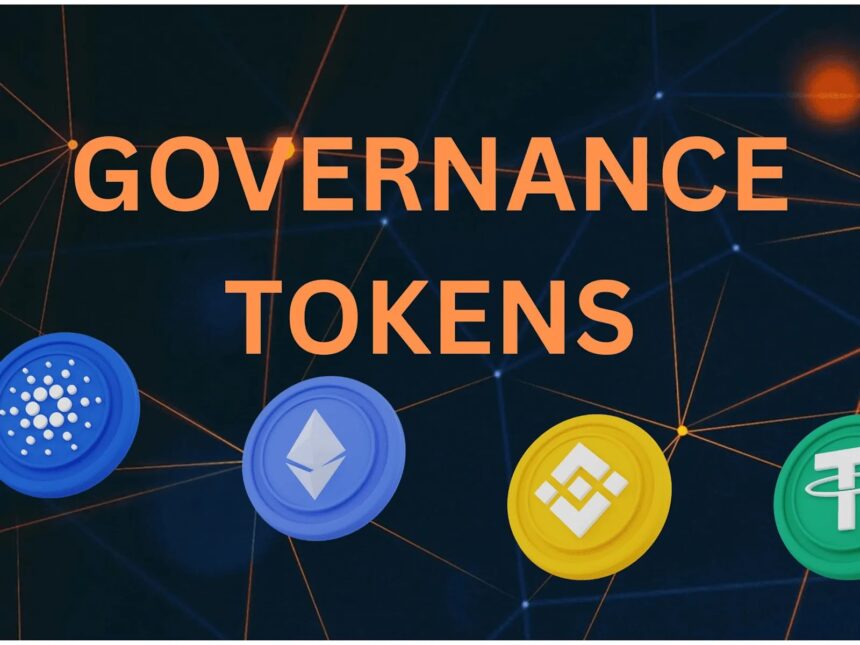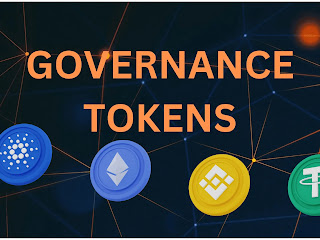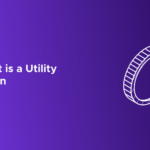Governance tokens play a vital function on this planet of decentralized programs, providing token holders the ability to affect and take part in decision-making processes. These tokens are usually not simply one other type of cryptocurrency; they’re the lifeblood of decentralized autonomous organizations (DAOs) and decentralized finance (DeFi) platforms, enabling stakeholders to manipulate protocols, suggest modifications, and vote on essential issues. This text delves deep into the world of governance tokens, exploring their mechanics, significance, and future implications. Go bitcoin-bankbreaker.com/ and hold exploring investing and ideas associated to it!
Understanding Governance Tokens
Governance tokens are distinctive digital belongings that grant holders voting rights and decision-making powers inside decentralized programs. Not like conventional cryptocurrencies, that are primarily used for transactions, governance tokens signify possession in a decentralized group or platform. Holders can use these tokens to take part in governance proposals, vote on protocol modifications, and even delegate their voting rights to others. Governance tokens are important for attaining true decentralization. As they distribute energy amongst a variety of stakeholders, somewhat than centralizing it within the fingers of some.
The Mechanics of Governance
The mechanics of governance tokens differ relying on the platform or group. Nevertheless, most governance programs function on an analogous precept: token holders suggest and vote on modifications to the protocol. This course of is commonly ruled by good contracts, which make sure that votes are clear and immutable. Token holders can suggest modifications, equivalent to modifying rates of interest in a lending protocol or including new options to a decentralized software (dApp). As soon as a proposal is submitted, token holders can vote on whether or not to implement it or not. The voting course of is often weighted by the variety of tokens held by every voter. Giving extra important stakeholders extra affect over the result.
Examples of Governance Tokens
A number of outstanding examples of governance tokens illustrate their significance and performance. Compound (COMP), as an example, permits token holders to vote on modifications to the Compound protocol, equivalent to including new belongings or adjusting rates of interest. Uniswap (UNI) token holders govern the Uniswap decentralized trade, deciding on charges, pairs, and different protocol parameters. MakerDAO (MKR) holders govern the Dai stablecoin system, voting on points like collateral varieties and stability charges. These examples spotlight how governance tokens empower stakeholders to form the way forward for decentralized programs.
Challenges and Dangers
Regardless of their potential advantages, governance tokens additionally face a number of challenges and dangers. One of the crucial important challenges is voter apathy, as many token holders could not actively take part in governance processes. This could result in choices being made by a small, vocal minority, somewhat than the broader group. Moreover, there’s a threat of centralization, as giant token holders could have disproportionate affect over governance choices, probably resulting in governance seize.
The Way forward for Governance Tokens
Regardless of these challenges, governance tokens have the potential to revolutionize conventional governance buildings. As decentralized programs proceed to evolve, governance tokens are more likely to play an more and more necessary function in shaping their growth. Improvements equivalent to quadratic voting and liquid democracy might additional improve the effectiveness of governance tokens, guaranteeing that choices are made pretty and transparently. Because the world turns into extra decentralized, governance tokens will probably be on the forefront of this transformation. Empowering people to manipulate themselves and their communities in new and thrilling methods.
Conclusion
Governance tokens are a robust device for attaining true decentralization, enabling stakeholders to manipulate protocols, suggest modifications, and vote on essential issues. By distributing energy amongst a variety of stakeholders, governance tokens make sure that choices are made transparently and pretty. As decentralized programs proceed to evolve, governance tokens will play an more and more necessary function in shaping their growth. Whether or not by Compound, Uniswap, MakerDAO, or different platforms, governance tokens are paving the way in which for a extra decentralized future.









